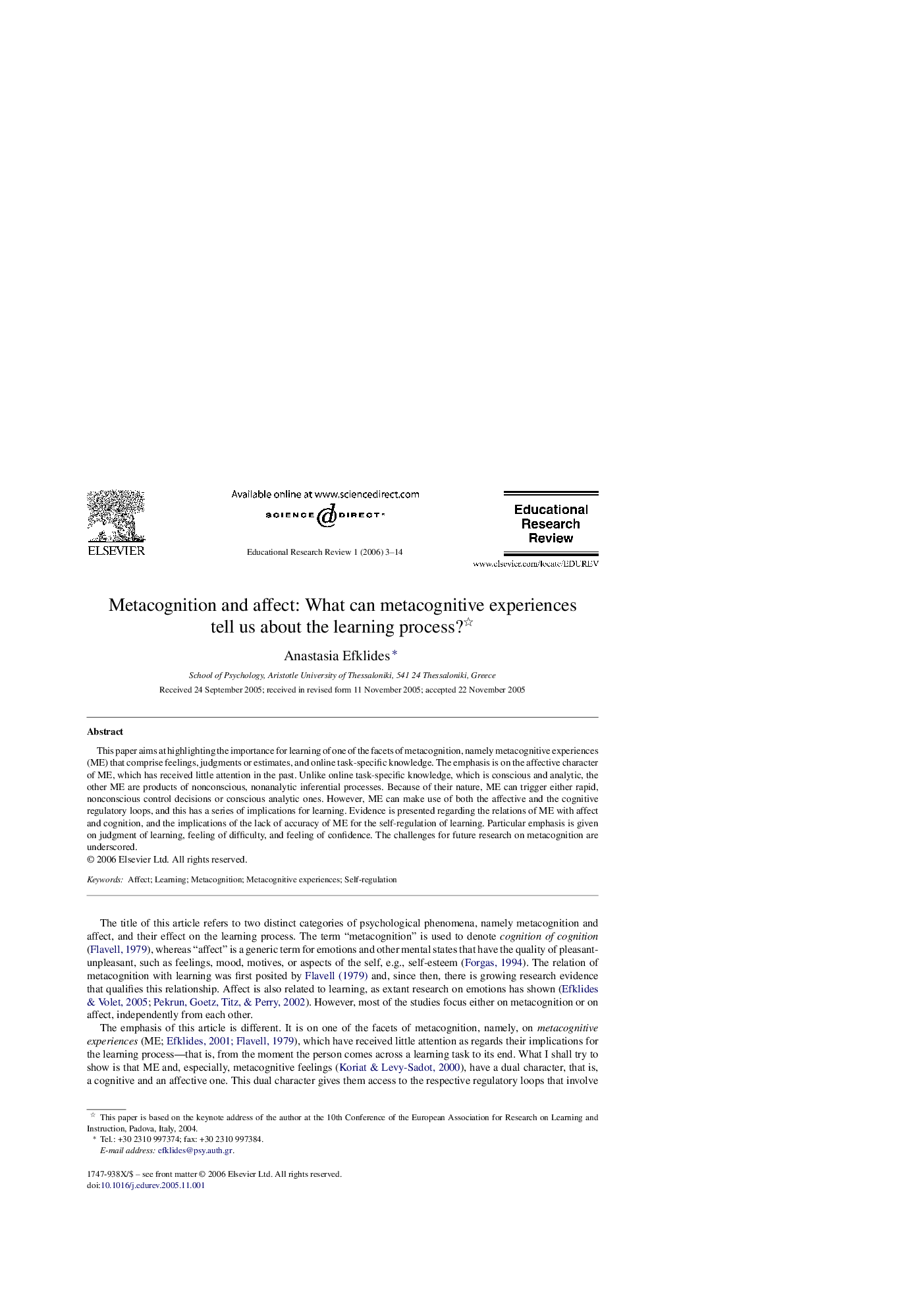| Article ID | Journal | Published Year | Pages | File Type |
|---|---|---|---|---|
| 355182 | Educational Research Review | 2006 | 12 Pages |
This paper aims at highlighting the importance for learning of one of the facets of metacognition, namely metacognitive experiences (ME) that comprise feelings, judgments or estimates, and online task-specific knowledge. The emphasis is on the affective character of ME, which has received little attention in the past. Unlike online task-specific knowledge, which is conscious and analytic, the other ME are products of nonconscious, nonanalytic inferential processes. Because of their nature, ME can trigger either rapid, nonconscious control decisions or conscious analytic ones. However, ME can make use of both the affective and the cognitive regulatory loops, and this has a series of implications for learning. Evidence is presented regarding the relations of ME with affect and cognition, and the implications of the lack of accuracy of ME for the self-regulation of learning. Particular emphasis is given on judgment of learning, feeling of difficulty, and feeling of confidence. The challenges for future research on metacognition are underscored.
